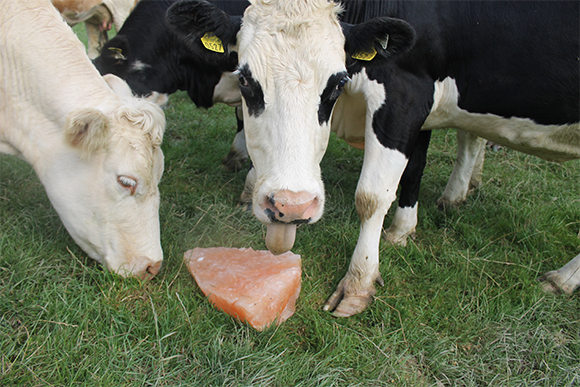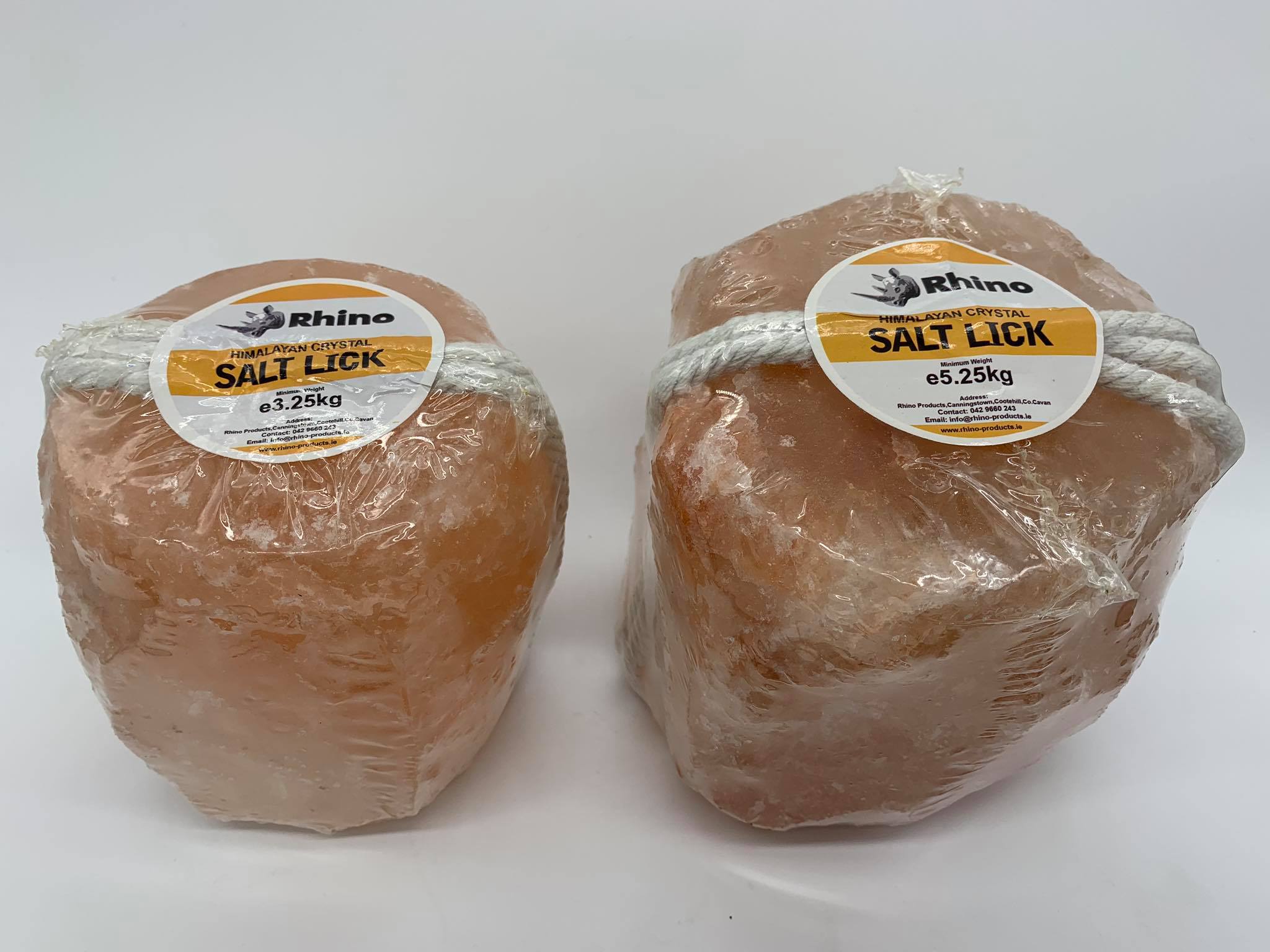Rhino Himalayan Rock Salt is both a cost-effective and a natural source of essential minerals and trace elements.
At Rhino, the company is proven and trusted suppliers of Himalayan rock minerals for bovine, ovine and equine animals in Ireland. Rhino purchases Himalayan Rock Salt from its sister company which is also a registered feed importer with the Department of Agriculture in Ireland.
The Department of Agriculture is notified of each shipment that is imported into the country and extra quality assurance testing is completed at this stage.
Since Rhino has started supplying this product it has been a great success. This product has received very positive feedback throughout the country. Rhino works hard with its supplier to ensure it only receives premium quality salt lumps at a weight range from 20kg-40kg.
It also imports 25kg retail bags with salt lump weights ranging from 3kg to 8kg. Rhino Himalayan Rock Salt can be sourced from all leading co-ops and agri merchants throughout Ireland.
Benefits at a glance
There are numerous benefits of using Rhino Himalayan Rock salt:
- Sodium helps to maintain water balance within an animal which is vital for cell and metabolic function;
- Salt is essential to promote saliva production and ensure optimum function of the rumen leading to greater feed efficiency;
- Reduces animals desire to drink urine, lick walls, barriers, etc;
- Self-limiting: Stock with a good supply of salt in existing diets will self-regulate salt intake. This means that when an animal has sufficient sodium they will not over-indulge as can happen with sugar-based supplements;
- Approved for organic systems;
- 100% natural and unprocessed, stimulates appetite and helps contain orf in sheep;
- Contains over 70 trace elements;
- Strengthens the immune system and physical strength in animals;
- It helps increase haemoglobin to improve mineral absorption in the body;
- It helps increase fertility in cows and improve their milk production capability;
- It provides horses and sheep with ample minerals to help alleviate deficiencies;
- Less than 0.2% insoluble matter.
How it is made and where does it come from?
Rhino’s salt is mined from deep within the foothills of the ancient Himalayan mountain range. The salt layer/deposits are from an ancient seabed that evaporated some 250 million years ago, still preserving its crystalline structure.
Why trace elements?
Trace elements/minerals are now universally recognised as being essential in any livestock diet. Although only required in low levels, their presence has a profound effect on livestock health and productivity.
Signs and symptoms
If your animal is low in salt, they may show the following symptoms:
- Lack of appetite;
- Loss of condition;
- Drop in milk production;
- Desire to drink urine;
- Reduced growth rates;
- Fertility issues.
Trace elements may contain the following:
- Calcium: Calcium is the most abundant mineral in an animal. Calcium is important for many vital functions such as bone formation and skeletal strength, supporting the nervous system and in supporting milk production;
- Magnesium: Magnesium is known as the “anti-stress” mineral. Deficiency in magnesium can be associated with high cell count, lameness and poor reproductive efficiency;
- Cobalt: Cobalt is essential to produce Vitamin B12 in ruminant animals and deficiencies can lead to poor growth rates and lack of appetite;
- Copper: Deficiency in copper is often visible in cattle as a “rusty coat” at certain times of year. It is also important for the animal’s immune system and for fertility;
- Selenium: Selenium is required during pregnancy and deficiencies can lead to weak offspring at birth and complications further down the line such as weight loss, muscle disease and general lack of thrive.
More information
For further information on Rhino Himalayan Rock Salt, just click here




